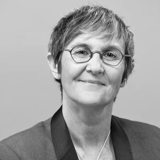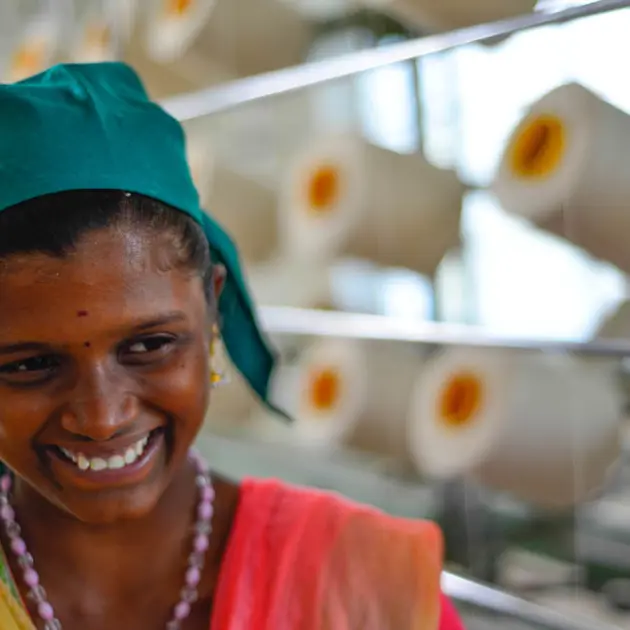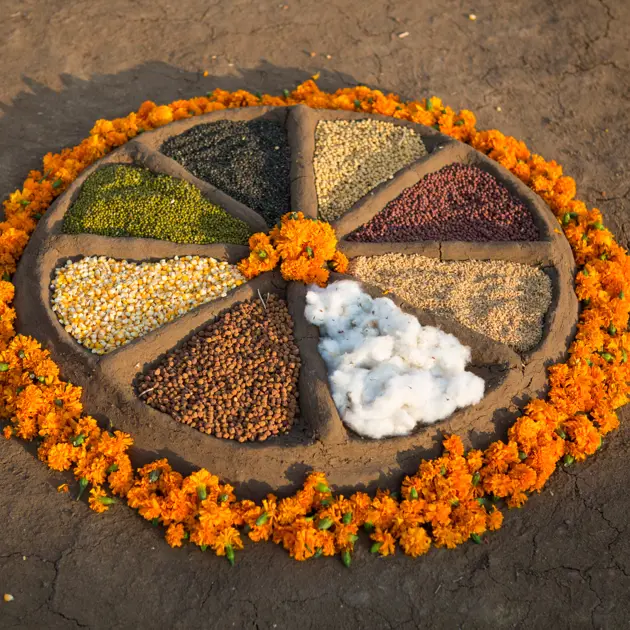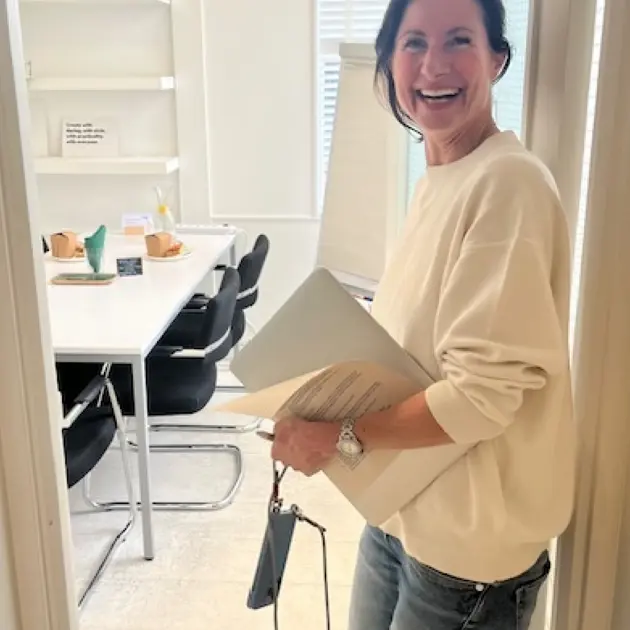Ten questions with Nicole Rycroft
Laudes Foundation works with leading practitioners across industries to champion the acceleration to a green, fair and inclusive economy. We asked Nicole Rycoft of Canopy about her journey, what her work with the fashion industry means to her, and how it contributes to the transition, in ten questions.
When did you know you wanted to work in this field?
Landing in the forest conservation movement was a wonderful accident. Certainly, I’ve always had a love of wild places, the cacophony of birds and smells of the Australian bush are part of my fabric. As a young woman I was dedicated to sport as an elite level rower – where I excelled until I had to deal with a health issue that kept me out of participating in the World Championships.
My life took a good turn. Illness gave me time to reflect on my life goals. After volunteering with groups on environmental and human rights in Australia and Southeast Asia, I moved to Canada. There I found a community of amazing activists and saw a strategic gap to shift big commercial sectors towards forest friendly alternatives. I did not have the specific skills but I knew what I wanted to do, and Canopy was born from that.
What is the best piece of advice you have ever received?
Best advice: “You can get a lot done if you don’t care who gets the credit.”
Depending on the day, there’s also a piece of advice that my phys ed teacher gave me on the start line of my first cross country race - “Run with your elbows” That comes in handy with some of our more challenging negotiations!
What was the last book you read that changed your thinking?
Organizational reading - Founder’s Mentality: with a small team at Canopy, we have always prided ourselves at punching above our weight to have a significant impact. This has been possible due to a strong model of change and smart people who have owned our programs, dedicating their creativity and energies to it. Our future success requires that same ‘founder’s mindset’ or ethos across the organization. As we grow, building that shared hunger for impact, and pride in execution of our work is really important.
Personal reading - Patriot – Alexei Navalny. It’s a warm and beautiful portrait of courage, love and belief in a greater good.
What do you find most fulfilling in your work?
At the turn of another year around the sun, I feel really fired up about the scale and ambition of Canopy’s work. I was surprised at how differentiated our strategy is – even at that kind of global forum. I love that our work is an industrial transformation strategy that is also a nature, climate and justice strategy. We’re not just chipping away at the edges of change – our approach is transformative of big unsustainable supply systems.
I also find working alongside other committed smart, dedicated change-makers inspiring and energizing, from my colleagues within Canopy and the movement, to our brand champions, innovation partners, and senior executives within producer companies.
What is the biggest hurdle you have faced in the past and how did you overcome it?
Canopy’s work has often been a little out of the box and as such fallen between the cracks of conventional philanthropy. In the first 10 - 12 years, times were often tight and there were many months when I personally bankrolled the organization and/or didn’t draw a salary. Thankfully those days are behind us - I have the gray hair to show for it!
In the early days of Canopy, CSR didn’t entail companies addressing their core operational impacts, so stepping into boardrooms to pitch transforming global supply chains was a tough sell. I heard a lot of "no’s" and had to be pretty creative in not just seeming like a pest. We didn’t just push harder - although tenacity certainly helped - we got smarter. We focused on relationship building and finding ways that we could provide a value proposition for companies.
We developed expertise in supply chains and systems change. We studied the mechanics of behavioural change and what compels people to join communities and movements of change. The more successes we had the more dedicated funders we attracted. But the real challenge was getting over the million-dollar budget mark so that we were big enough to be able to access larger foundations grants – a real chicken and the egg situation where Laudes took a bet on us. Our campaigns really took off from there.
What is your vision of a circular / sustainable future?
Well, that’s an essay topic, which I’d be happy to write. The short form is that we are dancing on the ruins of the ‘Take Make Waste’ business model because systems to collect and re-utilize materials at their end-of-life are efficiently established and non-toxic manufacturing tooled up.
The concept of circularity is normalized throughout society including at all parts of the value chain and in social and civic assumptions. This is paralleled by value shifts about what must be cared for and is reflected in attitudes towards consumption, those we share this planet with and our planet’s life support systems.
At Laudes we know that we need to work collectively to change the systems that affect all of us. What is one way you have achieved impact or moved the needle in collaboration with another organisation?
All of Canopy’s work is in collaboration with other organizations – be it other NGO’s, our philanthropic partners, brands or producers – and now investors. I’d say that one of the big collaboration results of this year is our work with 30+ brands to generate enough Letters of Intent to Purchase to buoy investor confidence that Renewcell was wanted and just needed more time. This effort was foundational to the mill being bought – and salvaged from bankruptcy.
That work continues and has broadened to include two projects – one on optimizing the path of Circulose through the value chain to avoid unneccesary costs and one in collaboration with Fashion for Good to leverage government subsidies to shave down the premium price of the first to market Net Gen pulp.
What is the one thing Canopy needs to be successful?
Brands’ purchasing power leveraged through their supply chain.
What is the one challenge you and your team need to tackle to accelerate this transition?
Investment in Next Gen production to leap the niche (expensive) production barrier and secure accelerated commercial production with economy of scale advantages.
What’s next for Canopy?
We’re working to catalyze 60million tonnes of Next Gen material – viscose, packaging, paper and tissue – within the next decade. That will fully replace all high carbon and biodiverse forests from the supply chain.
About Nicole Rycroft
Born in Australia, Nicole Rycroft is the Founder and Executive Director of award winning environmental not-for-profit, Canopy. A former physiotherapist and elite level athlete, she is an ardent surfer and enthusiast of life. One of Nicole’s guiding philosophies in life, “ask for what you want, you might just get it”, is foundational to her work in guiding Canopy’s team to transform unsustainable supply chains and advance forest conservation and community rights.
In addition to being a member of the UBS Global Visionaries Program, Nicole is an Ashoka Fellow, the recipient of a Canadian Environment Award Gold Medal, winner of the 2020 Climate Breakthrough Award, and a recipient of the Meritorious Service Cross of Canada.
-

By Nicole Rycroft
Executive Director, Canopy


